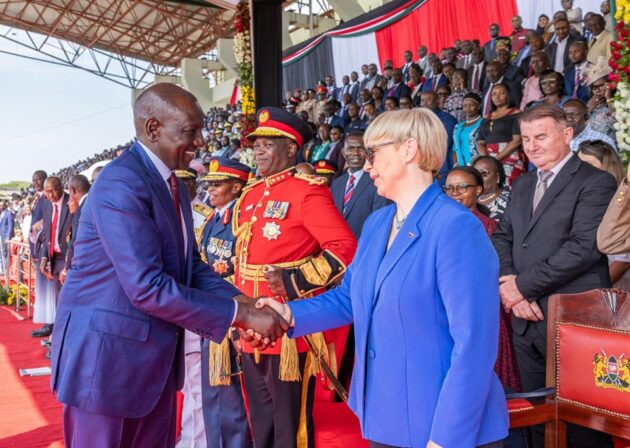
Slovenian president Pirc Musar urges Kenya to uphold independence ideals » Capital News
NAIROBI, Kenya, Jun 2 — Slovenian President Nataša Pirc Musar has called on Kenyans to remain vigilant in protecting the ideals of independence and to resist lingering condescending attitudes from former colonial powers.
Speaking on Sunday during the 62nd Madaraka Day celebrations in Homabay, where she was the guest of honour, President Pirc Musar said that countries should draw lessons from the past experiences to shape their future.
“In the 1960s, the world experienced a wave of decolonization. Yet, in many ways, Colonialism,” she said.
“And if I may say so, a condescending attitude towards the newly independent states did not just cease to exist, but there was a way to build self-confidence and assert oneself on the world stage.”
Reflecting on the Non-Aligned Movement of the cold war, she said its message — that smaller nations need not be beholden to the interests of global superpowers — remains relevant in today’s multipolar world.
She emphasized the importance of developing nations to follow the footsteps of countries, including Kenya, which defied the interests of the superpowers and former colonial powers.
“We live in a world where both old and emerging powers are yet against shaping the world before our eyes,” President Pirc Musar stated.
“All the rest of us, the smaller countries as much as passively observe this development. We must ask ourselves, What about us? Are we ready to raise our voices, and Mr President, we are ready.”
While lauding the strides Kenya has made since it attained self-rule, the Slovenian leader further stressed the importance of nations including Kenya, preserving the fundamental values that define national identity.
“History is not just about facts,” she said.
“It is about safeguarding the values that guarantee a nation’s survival — values that strengthen identity and, above all, unity. Jomo Kenyatta the man who led Kenya to Independence recognized this.”
President Pirc Musar praised the courage of those who fought for freedom, describing their struggle as one that “came at a heavy cost but laid the foundation for a sovereign nation.”
She noted that the Kenyan people overcame grave injustices, including the forced displacement from fertile lands and harsh colonial labour systems, to reclaim their destiny.
“The days of foreign domination are long gone, but they must never be forgotten,” she said.
Touching on the legacy of founding President Jomo Kenyatta, she observed that Kenyatta not only led Kenya to independence but also envisioned a united Africa — an ambition that remains as urgent today as it was decades ago.
“Kenyatta understood that Kenya’s unity alone was not enough,” she said. “He believed that a strong Africa means a strong Kenya.”
President Pirc Musar also reflected on the 80th anniversary of the Pan-African Federation, formed in 1945, noting that it sent a bold message to the world on behalf of the 700 million people then living under colonial rule.
She pointed to the 2018 creation of the African Continental Free Trade Area (AfCFTA) as a modern-day realization of that vision, praising Kenya for being among the first countries to ratify the treaty.
On global affairs, she drew parallels between Kenya’s post-independence path and Slovenia’s own experiences as part of the former Yugoslavia.
President Pirc Musar emphasized the importance of multilateralism, citing shared values between Slovenia and Kenya such as sustainable development, biodiversity protection, scientific innovation, and global cooperation.
She noted that Slovenia, currently serving as a non-permanent member of the United Nations Security Council, continues to champion global justice.
“Our diplomats speak out whenever injustice is done, wherever innocent lives are lost,” she said.
“And Kenya too, with its unparalleled experience in multilateralism, plays a vital global role.”
With several UN agencies based in Nairobi, she said Kenya’s international importance is evident.
“Peace, justice, and prosperity must not be the privilege of a few, but the right of all,” she said, calling for a global community built on solidarity and peaceful dispute resolution.
As the world confronts challenges such as poverty, climate change, and inequality, President Pirc Musar said it is only through unity and cooperation that nations — big and small — can hope to overcome them.
“Only such a United Community will be capable of confronting the world’s most urgents challenges, such as poverty and climate change, lack of access to basic needs and social exclusion.”